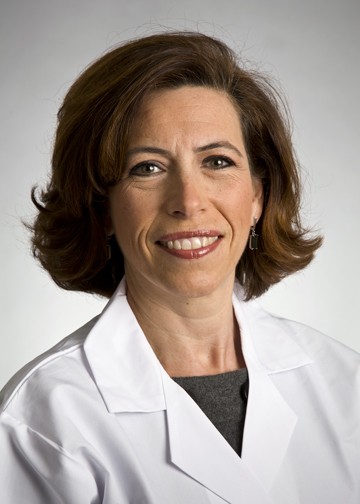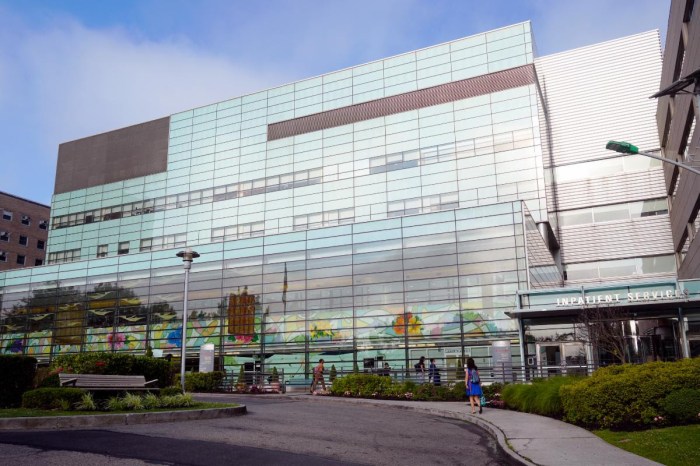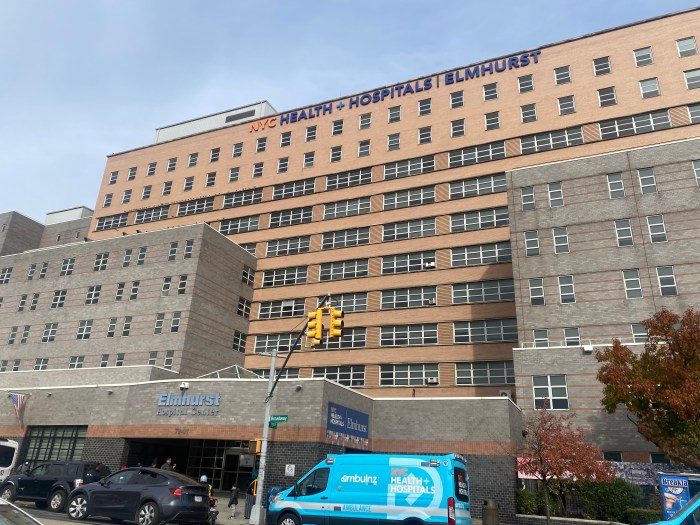Dr. Sorana Segal Maurer, the director of Infectious Diseases at NewYork-Presbyterian Queens Hospital in Flushing, is being hailed as one of many “sheroes” during Women’s History Month for her leadership in guiding and advising her colleagues on navigating the COVID-19 pandemic.
Maurer had made herself available to her colleagues 24/7 for many months, and strived to portray a daily sense of composure. However, she credits her colleagues for the remarkable work they have done together in helping to save lives during the global health crisis that ravaged Queens a year ago.
“I’m truly in awe of all my colleagues’ resilience and strength and the ones on the front lines in the critical care units and emergency room,” said Maurer, who has been the head of Infectious Diseases at the hospital since 2011. “I honestly don’t think I did more than any of them. It was a time where people stepped forward and it was just an incredible experience and we gave each other strength.”
As National Doctors’ Day is also around the corner on March 30, Maurer said it’s a day to say “thank you” to everyone.
“You cannot care for a patient without the support of everyone — the nurses, the people who bring food, wash your patients, clean the rooms, the lab technicians … the list is endless,” Maurer said.
Maurer’s career trajectory was strongly influenced by her strict Eastern European upbringing. She had immigrated to the U.S. at the age 11 and her parents were engineers. Her role models were her mother and grandmother — two strong women who played an important role in her life, she said.
“My mother was hardworking and high-achieving — I felt she could ‘do it all.’ She pushed me to achieve my best and eventually I internalized her high standards,” Maurer said. “My grandmother was a steady and gentle force in my life and taught me how to laugh and be patient. I have never struggled to wake up in the morning, because I love what I do.”
In early 2020, Maurer and her colleagues were watching developments on COVID-19 and were certain they would get hit, but they did not anticipate the velocity, sheer numbers and overwhelming mortality of their sickest patients, she said.
“We were humming and buzzing 24 hours a day, seven days a week with a lot of collaboration, coordination and communication,” Maurer said. “We were meeting several times a day to review what we had done in the last few hours, and what was needed to take care of patients and resources and staffing.”
As the hospital’s infection control officer, Maurer’s responsibilities included making NewYork-Presbyterian Queens as safe as possible for healthcare workers to care for patients; helping disseminate pertinent information to staff in real time; limiting panic and avoiding dangerous behaviors; coordinating with colleagues; and functioning as a resource for hospital leadership.
“I was making sure the staff had the proper knowledge and how to protect themselves with PPE and also speaking about all of the latest guidelines and new information, and answering any kind of misconceptions,” said Maurer, who has been at the hospital since 1993.
According to Maurer, she had never been as personally and professionally challenged by circumstances in the past few months, in spite of providing care during the earliest days of the AIDS epidemic, caused by HIV (human immunodeficiency virus).
“This was different in that the numbers of patients and the rapidity of the spread of illness was remarkable, and I think what we all found incredibly traumatic was our desperate efforts to save lives,” Maurer said. “In the old days of AIDS, the information was not as rapidly evolving or the guidelines.”
Although the hospital staff had frequent and thorough updates from NYPQ as well as NYP Enterprise leadership, Maurer said she felt the need to connect with as many healthcare workers on the front line as she could to make sure she understood their concerns. Amid growing fear and uncertainty about COVID-19, hospital staff members became worried about their families and patients. According to Maurer, they found comfort in each other while meeting in small groups.
“It was that unity, when you’re all together, it helps to share the burden a little bit,” Maurer said. “I hope it was helpful to the people I huddled with, but it was certainly helpful to me because you bring back humanity, and you also talk about what it’s like to lose a patient, but also all of the lives we saved.”
Like many healthcare workers, the events that unfolded psychologically impacted Maurer, but the support she received from her colleagues and family was invaluable and helped her to restore herself, she said. It was also the kindness and generosity of the community delivering food and flowers to the hospital.
“The entire community was behind us. We coped because we knew people were relying on us, and you had to do it for them and their family members. I have never had anything like that ever,” Maurer said.
One year later, as she reflects on COVID, Maurer said in spite of the surge and some of the variants in the community, they are in a much different place now compared to last March.
“We are better prepared from supplies to our knowledge. We know what it means when a patient comes to the emergency room and what treatments they need,” Maurer said.
As the COVID-19 vaccinations symbolize a ‘shot of hope’ as the world moves into a post-COVID world and retaining some sense of normalcy, Maurer said the vaccine is a “tremendous game changer.”
“I joke around with my patients and tell them, ‘Don’t walk to get the vaccine; run to get the vaccine if your opportunity comes,’” Maurer said.
In Maurer’s personal life, she has found great satisfaction in her family, cooking, being with her dogs, and toiling in her garden.
While international travel may not be in the cards for a family vacation this year, Maurer is looking forward to visiting a state in celebration of her daughter’s graduation from medical school and her son’s graduation from law school in May.
“World travel with my family reminded me that there is much joy outside work,” Maurer said. “I have optimism that we will be able to experience the world again.”



































